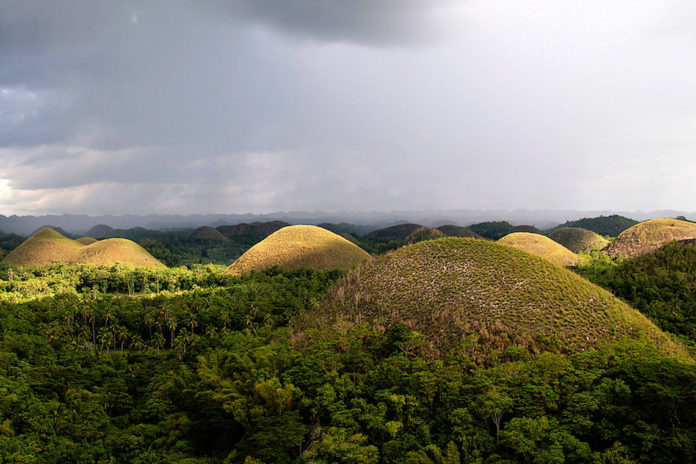A hill is an elevated landform. However, it is not as high or as steep as a mountain. The Chocolate Hills of the Philippines are an example of this type of landform. These hills are an example of a karst landscape. Tectonic activity can create hills. This is usually through folding or faulting of the Earth’s crust. When erosion wears a mountain down, hills can also be created.
Origins of a Hill
There is no real clear definition of a hill. Hills are examples of elevated landforms. However, they are not as high as mountains. Hills are also generally less steep than mountains.
Tectonic Forces
Tectonic activity creates hills. For example, when folding or faulting occurs a hill may be created. Small scale volcanic activity may also result in the creation of hills.
Erosional Forces
Erosion can wear down large landforms into hills. Over a long period of time, the elements can wear down a mountain. The more common erosional forces are water (rivers and waves), wind, and glacial movements. These erosional forces get their energy from their movement and mass.
Chocolate Hills
One classic example of the hill landform is the Chocolate Hills. These hills are in the Philippines on the island of Bohol. There are over 1,700 distinct hills on the island.
The Chocolate Hills actually derive its name from the grassy vegetation that covers them. During the rainy season, the hills are lush and green. However, during the dry season the grass turns brown. Thus, the hills have a chocolate color during summer.
These hills range in height from 30 to 50 meters. They are landforms of low elevations. Marine limestone makes up the Chocolate Hills. This suggests that the area was once under water.
Karst Landscape
Limestone is a type of sedimentary rock. The sedimentary rock is are the remains of marine animals such as coral and sea shells. Limestone is easily worn down by water. When the rainfall is slightly acidic, the limestone dissolves. However, erosion of the limestone is uneven. Water usually begins to cut into the weakest points of the landscape. Weaker parts of the landform are worn down into valleys and plains. Areas that are more resistant to erosion from water remain elevated areas.
The Chocolate Hills and their surrounding valleys and plains are an example of this type of landscape. Elevated limestone rock has been exposed to slightly acid rainfall over many years. Erosion wears down the limestone and creates hills and valleys. This is an example of a karst landscape.
Reflections
Vocabulary
- erosional forces
- karst landscape
- tectonic forces
Notes
- A hill is an elevated landform. It is less tall and less steep than a mountain.
- The Chocolate Hills of Bohol are an example of hills.
- A karst landscape is an area with limestone that has been worn down unevenly.

